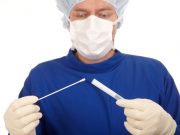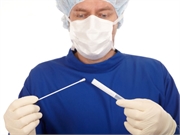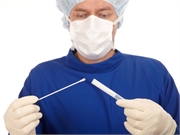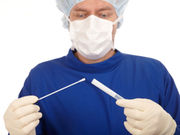Tag: Pap Smears
New Federal Rule Means Hospitals Need Written Consent for Pelvic, Prostate Exams
By Robin Foster HealthDay Reporter
MONDAY, April 1, 2024 (HealthDay News) -- In a letter sent to teaching hospitals and medical schools across the country,...
Early Diagnosis of High-Grade Serous Ovarian Cancer Feasible
Copy number profile abnormality values of DNA extracted from Pap samples higher from pre-HGSOC than healthy women
Sexual Minority Status Linked to Lower Odds of Pap Screen
Odds of ever undergoing pap testing lower for non-Hispanic White and Hispanic SM participants versus non-Hispanic White heterosexuals
Cervical Cancer Screening Rates Dropped During Stay-at-Home Order
Cervical cytology screening rates per 100 person-months decreased 78 percent among women aged 21 to 29 years
Many Pelvic Exams, Pap Tests Unnecessary in Teens and Young Adults
More than half of bimanual exams, >70 percent of Pap tests in women aged 15 to 20 years unnecessary
Cervical Cancer Screening Remains Low in Women Ages 45 to 65 Years
Screening rates are insufficient to reduce cervical cancer incidence
Cervical Cancer Screening Remains Low in Women Ages 45 to 65 Years
Screening rates are insufficient to reduce cervical cancer incidence
Cervical Cancer Screening Rates ‘Unacceptably Low’
Just 64.6 percent of 30- to 65-year-old women up to date, but Pap-HPV cotesting has increased
Age to Stop Cervical Cancer Screening Depends on Test Used
Negative HPV test, HPV-cytology co-test tied to low remaining lifetime cancer risk for unvaccinated
USPSTF Backs Cervical Cancer Screening With Cytology or hrHPV
Recommendations for screening with cytology alone every three years or hrHPV testing every five years














